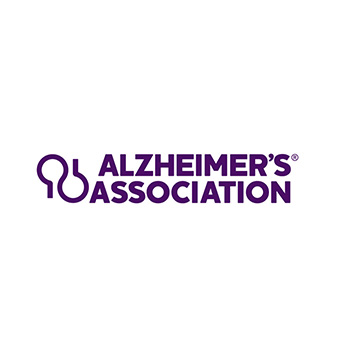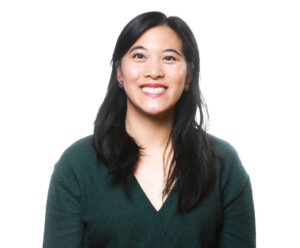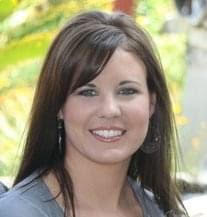About
Dementia Care Aware, originally launched by the California Department of Health Care Services through Senate Bill SB 48 in partnership with the University of California, San Francisco, has expanded into a nationwide initiative. Building on its success in California and collaboration with multiple UCs and dementia-focused organizations, Dementia Care Aware now supports primary care providers across the country. The program offers education, tools, and support to improve dementia detection and care, with a continued focus on serving underserved and low-income populations.

I feel much better equipped. Thank you so much!”


Our Team

Dr. Anna Chodos, MD, MPH
Dr. Anna Chodos is a Professor of Medicine in the Division of General Internal Medicine at Zuckerberg San Francisco General and the Division of Geriatrics, both within the Department of Medicine at UCSF.
Her clinical work is in outpatient specialty care in geriatrics and dementia care. Her academic work is focused on understanding the unmet needs of older adults who are seen in primary care in the safety net, especially those who are living with dementia.

Dr. Josette Rivera, MD
Dr. Josette Rivera is a Professor of Medicine and a clinician educator in the UCSF Division of Geriatrics. Dr. Rivera teaches medical students, residents, and fellows how to do a home visit and related elements of geriatric care within this context, including assessment of functional status, care coordination, and establishing a patient's goals of care. Her goal is to ensure that trainees understand the unique needs of and resources for homebound older adults.

Clara Park, MPA
Clara Park is the Director of Strategy for Dementia Care Aware. In this role, she is responsible for strategic partnerships and policy. She has over ten years of experience in healthcare and has a MPA and BA from New York University.

Danielle Taylor, MBA
Danielle Taylor is responsible for overseeing day to day operations of the program including outreach, marketing, implementation, and data management of the program. Danielle received her Bachelor of Arts in Neuroscience from Boston University and a MBA from Haas School of Business.

Sarah Bronstein
Sarah is the Director of Marketing and Special Events for Dementia Care Aware. Sarah has a BA in Public Relations and Advertising from the Chapman University and over 10 years of professional experience.

Dana Fong
Dana is the Website, Social Media, and Communications Manager for Dementia Care Aware. She manages the website and social media platforms to create engaging, informative, and compassionate content. Through her work, Dana helps raise awareness, advocate for better care, and foster community among caregivers and those living with dementia.

Luisa Alejandra Tello Pérez, MGPS
Alejandra holds an M.A. in Global Policy Studies with a focus on international development and data analysis, as well as a B.A. in Economics. She brings extensive experience managing complex research and policy programs, enhancing operational efficiency, and advancing health equity through innovative strategies.

Amanda Valenzuela
Amanda is the Senior Community Healthcare Outreach Manager at the Alzheimer's Association leading outreach on behalf of Dementia Care Aware. Amanda's been with the Alzheimer's Association for nearly 10 years in both development and health systems roles and is an advocate for those facing Alzheimer's and other forms of dementia.
FAQ
Dementia will soon affect 1 in 5 older Californians. Dementia impacts a person’s ability to self-manage their day-to-day activities and other medical conditions.
Detecting dementia early:
- Allows you to connect the person and their caregivers to resources early
- Improves quality of life for affected persons and their caregivers
- Reduces unnecessary costs of care
- Allows you to jumpstart a brain health plan, which is crucial to slowing progression.
Check out our General Information Flyer to learn more.
1) What Is the Cognitive Health Assessment?
The cognitive health assessment is a quick tool that can be completed by any members of a primary care team and then reviewed by a treating provider. It is easy to score, uses tools that are validated in primary care, and can be done in multiple languages.
The cognitive health assessment approach has three steps:
- Take a brief patient history, for example, through a question such as “Have you noticed any changes in your memory or thinking abilities this last year?”
- Use screening tools. Use validated tools to assess cognition AND function, which can be given to the patient OR a care partner.
- Document care partner information. Do a brief assessment of the patient’s support system.
The table below outlines the recommended tools that can be used with the patient or an informant to satisfy the requirements of the cognitive health assessment:
These videos illustrate the cognitive health assessment in action.
- Administering a Cognitive Health Assessment for Providers
- Administering a Cognitive Health Assessment for Team Members
2) What Is the Training?
Dementia Care Aware provides a self-paced online course that can be done over time or a monthly live virtual training on the cognitive health assessment (CHA) . Each offers CE/CME credits.
- Billing providers in California are eligible to bill for the assessment using CPT code 1494F for patients aged 65 and older with Medi-Cal only coverage.
- For more information, download our Cognitive Health Assessment Training Flyer
Any member of the care team can conduct the cognitive health assessment, but a billing provider must do the final review and documentation.
An example of a potential team model might be:
- At check-in, the patient receives a survey that includes a question about memory symptoms.
- The Medical Assistant assesses function by assessing activities of daily living (ADL) and/or instrumental activities of daily living (IADLs) by asking the patient the questions on the functional abilities’ checklist.
- The Nurse conducts a Mini-Cog with the patient.
- The Social Worker assesses the patient’s support system and documents it.
- The primary care provider, a Physician or Advanced Practice Provider, reviews and interprets the results, discusses the results and next steps with the patient, and documents the cognitive health assessment components.
The Medicare Annual Wellness Visit includes a requirement for a cognitive impairment initial screening and allows flexibility on the tools providers can use for this screening. The Dementia Care Aware cognitive health assessment may be used as a resource for this screening.
We help providers, health care teams and practices implement the cognitive health assessment in practice with program offerings that fit your bandwidth:
- Implementation toolkit: A guide to support primary care teams in implementing routine cognitive screening for adults 65+. It includes practical examples and insights to support quality improvement and change management.
- Centralized warmline support: 1-800-933-1789 for clinical management or consult questions Monday to Friday from 9 a.m. to 5 p.m.
- Dementia Care Resources: The Dementia Care Aware resource library contains resources and information to support dementia screening, assessment, care planning, and brain health.
- Webinars and podcasts: Presentations on a variety of topics to assist with dementia care from screening to care planning and implementing dementia care in practice. FREE CE/CME.
- Online Courses: Reinforce your learning with additional self-paced training! Receive FREE 0.5 CE/CME credit for each completed lesson.
Download our Program Offerings flyer to learn more.
 Complete an evaluation survey at the end of the modules to receive a continuing education certificate. Please email us at dca@ucsf.edu if you have any questions or concerns.
Complete an evaluation survey at the end of the modules to receive a continuing education certificate. Please email us at dca@ucsf.edu if you have any questions or concerns.
